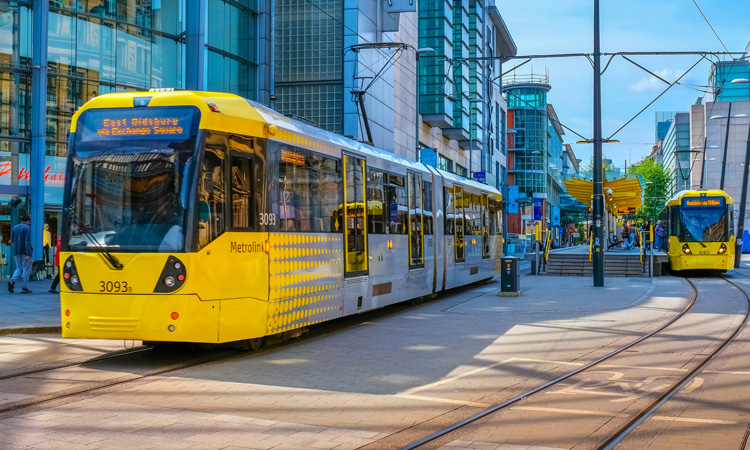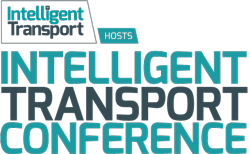What is mobility like in Manchester?
- Like
- Digg
- Del
- Tumblr
- VKontakte
- Buffer
- Love This
- Odnoklassniki
- Meneame
- Blogger
- Amazon
- Yahoo Mail
- Gmail
- AOL
- Newsvine
- HackerNews
- Evernote
- MySpace
- Mail.ru
- Viadeo
- Line
- Comments
- Yummly
- SMS
- Viber
- Telegram
- Subscribe
- Skype
- Facebook Messenger
- Kakao
- LiveJournal
- Yammer
- Edgar
- Fintel
- Mix
- Instapaper
- Copy Link
Posted: 10 December 2019 | Rachel Hutchins - TfGM, Sean Dyball - TfGM | No comments yet
Intelligent Transport’s Sam Mehmet spoke with Sean Dyball and Rachel Hutchins from Transport for Greater Manchester at the Intelligent Transport Conference 2019, about the current progressions and challenges within the mobility sector in Manchester.


Manchester's Metrolink is operated by Keolis
What is the primary focus for Transport for Greater Manchester (TfGM) at the moment?
Sean: Greater Manchester is currently undertaking a major public consultation on how the city-region’s bus services should be run. This will run until January and the feedback from that consultation will then inform a mayoral decision. The outcome of this could significantly affect how bus services are run in Greater Manchester.
There is also huge focus around improving air quality, active travel and improved integration from a ticketing and travel information perspective. One area that we’ve worked particularly hard on this year is the introduction of the Our Pass scheme – a mayoral initiative to encourage bus use amongst 16 to 18-year olds.
The pass provides free bus travel across Greater Manchester and allows young people to access a range of cultural, sport and leisure activities. We’ve already distributed around 40,000 passes since it launched in the summer and we’re very positive about how it has been received.
There is also huge focus around improving air quality, active travel and improved integration from a ticketing and travel information perspective
We’ll continue to monitor the scheme’s impact on bus patronage over the year, as well as the wider opportunity element. It’s hoped that those who’ve signed up for the pass will become long term bus users.
Rachel: Everything that we are working on links back to mobility and how we bring the 10 districts of Greater Manchester together through improved connectivity.
Customer travel information is fundamental to making this work – it is the glue that connects the transport network. You can have as much infrastructure as you like, but without effective customer travel information, the transport network will not function efficiently.
Accurate and timely information is imperative to us influencing travel behaviour and, ultimately, getting the best use out of our network.
How does TfGM fit into the Mobility-as-a-Service complex?
Rachel: The key thing with Mobility-as-a-Service (MaaS), and with any customer-facing platform, is to get our data right. So whether that’s real-time Metrolink, bus, cycling or even parking data, it must be of high quality and readily available to us.
We’re also focusing on the framework of how we manage and utilise the data we receive. How this aligns with ticketing, and then payments, is the enabler for MaaS.
Sean: We’ve recently agreed a new open data provision, which will allow us to start releasing our data. From there we will work with the innovation market to see what we can do with suppliers. A high proportion of visits to TfGM’s website is from users looking for travel information – the sooner we can release that information more openly, the wider the benefit will be for Greater Manchester.
We’re also focusing on the framework of how we manage and utilise the data we receive. How this aligns with ticketing, and then payments, is the enabler for MaaS
Rachel: We are also working with Transport for the North on their disruption messaging tool. This is another key dataset that could be used on our own channels or, like Sean said, working with the market to see what they can do with that information. TfGM has a crucial role in enabling all of this to happen. It doesn’t necessarily mean we need to do it all ourselves, but we need to let it happen through high quality data.
The Intelligent Transport Conference will be returning in 2020. Click here to register your interest and receive the latest information!


What are the main challenges facing TfGM at the moment?
Sean: I personally think one of the biggest challenges is working out how much in-house development we want to do, compared to outsourcing and working collaboratively with suppliers.
We’ve already seen a lot of interest from suppliers now we have started to adopt an open data provision. We know that the more high-quality data we are able to release, the more suppliers will want to work with us. But partnering with a particular supplier presents its own challenges, including whether there is a reputational risk for TfGM. I think we’ve got to get that balance right and it’s something we’re carefully working through.
Rachel: MaaS might be the end solution, but there is a decision to make on the path we take and which building blocks we use to help us get there. We don’t have to do everything at once but we need to determine which choices will lead to quick wins and get us on that path to integrated travel information.
Sean: The other challenge is that across the 10 districts there is quite an eclectic mix of user needs. What is required in the regional centre or the international gateway at the airport can be quite different to what is needed in towns such as Bury or Bolton.
MaaS might be the end solution, but there is a decision to make on the path we take and which building blocks we use to help us get there
When we’re building any of these platforms, and releasing new data, we’ve got to be conscious that we’re dealing with a wide range of user needs. What works in one area might not always work in the other, so we’ve got to be adaptable and dynamic in how we apply our methods.
What do you think the trends for the mobility sector are going to be in 2020?
Rachel: The first and last mile is becoming an increasing topic of discussion, and how that integrates with the rest of the transport network. And we need to make sure the provision of both infrastructure and information is accurate so that people are using active modes of travel as much as possible. This will be important for us, particularly in relation to our mode share targets in TfGM’s 2040 strategy.
Sean: In Greater Manchester, integration of transport modes and services such as ticketing and travel information is one of our biggest challenges.
The cycling and walking agenda is also huge, especially for us in having Chris Boardman as the region’s Cycling and Walking Commissioner. A lot of work is being undertaken to deliver the Bee Network, which will be the UK’s largest cycling and walking network, and how it integrates to the wider transport network.
Rachel: We know that some elements of our travel information provision could be improved upon, but we believe that it gives us an opportunity to leapfrog some other places.
We’ve conducted extensive research, including customer feedback, and have spoken to a variety of different agencies and organisations to understand how they’ve tackled problems. Working collaboratively with other transport authorities will help us to use that learning and I expect that we’ll be in a really good place in a years’ time.
Biographies
Sean Dyball is the Head of Customer Engagement at TfGM. Sean oversees TfGM’s development of digital and customer travel information services.
Rachel Hutchins is the Customer Information Development Manager at TfGM. Rachel’s role is to improve and enhance customer travel information across the various modes and channels in Greater Manchester.
Related topics
Infrastructure & Urban Planning, Mobility Services, Public Transport, Ticketing & Payments, Transport Governance & Policy
Related cities
Greater Manchester
Related organisations
Transport for Greater Manchester (TfGM)
Related people
Chris Boardman







